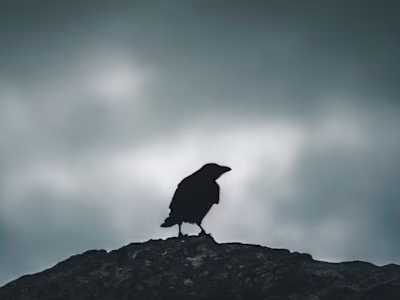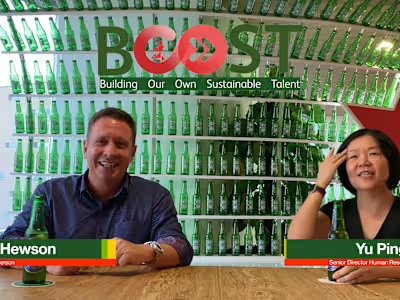Informative Speech | Her-ricannes: Feminine-named Hurricanes
My name is Sarah and I share a name with a hurricane—Hurricane Sarah, as you may have guessed.
I was a category 5 hurricane (the highest category on the hurricane scale) that struck during the 2018 Atlantic hurricane season. I peaked in strength with 280 kilometre per hour sustained winds. I blew through the Bahamas, between Cuba and Florida, the Gulf of Mexico, and at my peak intensity, the Scorpion Reef, before making my final landfall in Louisiana. I caused an aftermath of 37 fatalities and $20.9 billion in damages. Oof—not my proudest moment.
Formidable, unstoppable, destructive… Hmm… Now, I can’t help but wonder—was I named after Hurricane Sarah or was Hurricane Sarah named after me? But all jokes aside, you may very well share a name with a hurricane too.
Although the World Meteorological Organisation now names hurricanes after both men and women, storm names weren’t always so gender-balanced. The history of feminine-named hurricanes—or her-ricanes—may seem innocuous but believe me, it can have potentially deadly consequences.
1953-1979: Feminised Naming Convention
To understand the history of feminine-named hurricanes, let’s go back to 1953 when the feminised naming convention of hurricanes was established.
From 1953 to 1979, hurricanes were given only female names. For a quarter of the 20th century, hurricanes were named after women, their names borrowed from girlfriends, wives and disliked public figures. Meteorologists of that time considered it appropriate as they believed that hurricanes and women shared characteristics of being unpredictable, vengeful or generally stormy (Jung et al., 2014).
Once hurricanes assumed female names, meteorologists began talking about them as if they were women. The phrases they used to describe hurricanes were the very same phrases they used to describe women—saying that one was “temperamental,”, or that another was “teasing” or “flirting” with a shoreline.
End of the 1960s: Women's Rights Activists’ Protests
The turning point in the history of feminine-named hurricanes came in the end of the 1960s when there was demand for change in the feminised naming convention of hurricanes.
In the end of the 1960s, women's rights activists protested against the feminised naming convention of hurricanes. One of whom was the founding mother of Florida’s modern feminist movement, Roxcy Bolton. Bolton told media, “Women deeply resent being arbitrarily associated with disaster.”
1979-Present: Gender-balanced Naming Convention
Change in the history of feminine-named hurricanes finally came in 1979 (after 20 years of protest) when the feminised naming convention of hurricanes was reformed to the one we use today.
In 1979, a gender-balanced naming convention of hurricanes was adopted. Six lists of names in alphabetical order—alternating between male and female names—are used on a six-year rotation.
The only time the list is changed is if a storm is so deadly or costly that the future use of its name on a different storm would be inappropriate for reasons of sensitivity. Examples include infamous storms such as Irma and Maria (2017), Sandy (2012) and Katrina (2005) ("Tropical Cyclone Naming", 2021).
This gender-balanced naming convention has been used ever since, forever changing the way we look at the world’s fiercest storms. Right?
Wrong.
According to a 2014 study published in the journal Proceedings of the National Academy of Sciences, “(f)emale hurricanes are deadlier than male hurricanes'' (Jung et al., 2014). As compared to masculine-named hurricanes, feminine-named hurricanes cause significantly more deaths because they lead to lower perceived risk and consequently result in less preparedness.
In other words, more people would flee their homes if Hurricane Christopher came barrelling toward them than if the same were to be said for Hurricane Christina.
In judging the intensity of hurricanes, people appear to be applying gender biases about how men and women behave. Merely by symbolically associating hurricanes with a given sex through their assigned names, people make unconscious perceptions congruent with corresponding gender stereotypes.
Gender stereotypes associate men with strength and aggression, and women with gentleness and passivity. Due to the resulting gender biases, people might take greater precautions to protect themselves from masculine-named hurricanes, while reacting more apathetically to feminine-named hurricanes.
So, if you happen to be in the path of a hurricane, gender bias might actually kill you. We could recommend policymakers to consider a naming convention of hurricanes that doesn’t use gendered names at all. Or we could also recommend people to… you know, unlearn their gender biases considering that their lives literally depend on it at this point.
But nah… that’s asking too much.
As it turns out, feminine-named hurricanes are a phenomenon far bigger than itself. Feminine-named hurricanes aren’t just… well, feminine-named hurricanes—because names carry meaning, names hold power and names matter.
Cognitive research suggests that language and the way people use it has a profound influence on the way we see the world. Through feminine-named hurricanes, implicit gender biases are formed, reinforced and activated. In turn, these gender biases influence our thoughts, words and behaviour, whether we realise it or not.
And it’s not just hurricanes. It’s street names and ship names too. But those are whole other stories for another day.
So, if we liken women to hurricanes, they’re aggressive and ruthless, yet… unassuming and weak. Women have been trapped in this dichotomy for centuries, denying them of their complexity of everything else that they are in between. Nothing has ever so neatly encapsulated how women have long been represented in society than the phenomenon of feminine-named hurricanes. Who would have thought it would be found in this odd, tiny corner of weather history?
But above all, one thing remains true—women are a force of nature capable of storming for change towards a more equal society.
Like this project
Posted Apr 10, 2023
Informative Speech
Likes
0
Views
25






